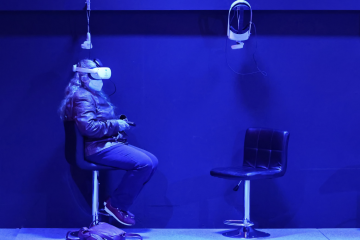At the beginning of the semester it seemed like almost everyone on Facebook was up in arms over SOPA and PIPA. Statuses, photos and links referred to the limitations of Internet freedom that these bills could potentially bring about.
The Stop Online Piracy Act (SOPA) and the Protect IP Act (PIPA) were bills introduced in the US Congress and Senate, respectively, that aimed to reduce online piracy and increase the penalties for reproducing copyrighted materials. Both acts would boost the power of the Attorney General to take action against sites featuring copyright infringement and any sites that link users to sites containing copyright-infringed materials.
The bill states that the government would be given the power to take measures that would “prevent access by its subscribers located within the United States to the foreign infringing site (or portion thereof) that is subject to the order.” Essentially, this would “blackout” the site or portions of the site linked to infringement and disallow money to flow to these sites, including money from paying subscribers and advertisers.
Supporters of the two bills and those who heavily lobbied for the legislation were generally companies dependent on strong copyright law. A significant portion of the media industry, the Motion Picture Association of America and the US Chamber of Commerce have expressed their support for the bills. Opponents include free speech activists and social media sites such as Twitter, Tumblr and LinkedIn.
Wikipedia, Reddit and Wired and many other websites protested the bills by blacking out, or partially censoring, content on their pages on Jan. 18, 2012. On their website during the blackout, Wikipedia posted this message: “Imagine a World Without Free Knowledge…Right now, the USCongress is considering legislation that could fatally damage the free and open Internet.”
Corynne McSherry, the intellectual property director at the ElectronicFrontierFoundation, a digital rights advocacy non-profit, told The Guardian, “No one asked the Internet – well, the Internet is speaking now. People are really rising up and saying: ‘Don’t interfere with basic Internet infrastructure. We won’t stand for it.’”
Following the website blackouts several congressmen and senators removed their approval of the bills, citing the mass public opposition to the bills as the cause.

In addition to the online protest, from both websites themselves and the vast majority of social media users, over 100,000 US citizens signed two petitions through President Obama’s “We the People” petition platform. The petitions demanded that Obama vetoes SOPA. The White House responded by officially announcing it would not support SOPA or PIPA. It wrote on its website, “While we believe that online piracy by foreign websites is a serious problem that requires a serious legislative response, we will not support legislation that reduces freedom of expression, increases cybersecurity risk, or undermines the dynamic, innovative global Internet.”
In defense of the bill, Patrick Leahy, a Democratic senator from Vermont who sponsored PIPA, said in a press release on Jan. 17, 2012, “Much of what has been claimed about [PIPA] is flatly wrong and seems intended more to stoke fear and concern than to shed light or foster workable solutions.”
It may be too soon for SOPA opponents to claim victory, as it seems the government and the media industry are still committed at placing higher policing mechanisms on Internet sites. For now, however, a new form of protest can claim short-term success, as SOPA and PIPA have been halted.




